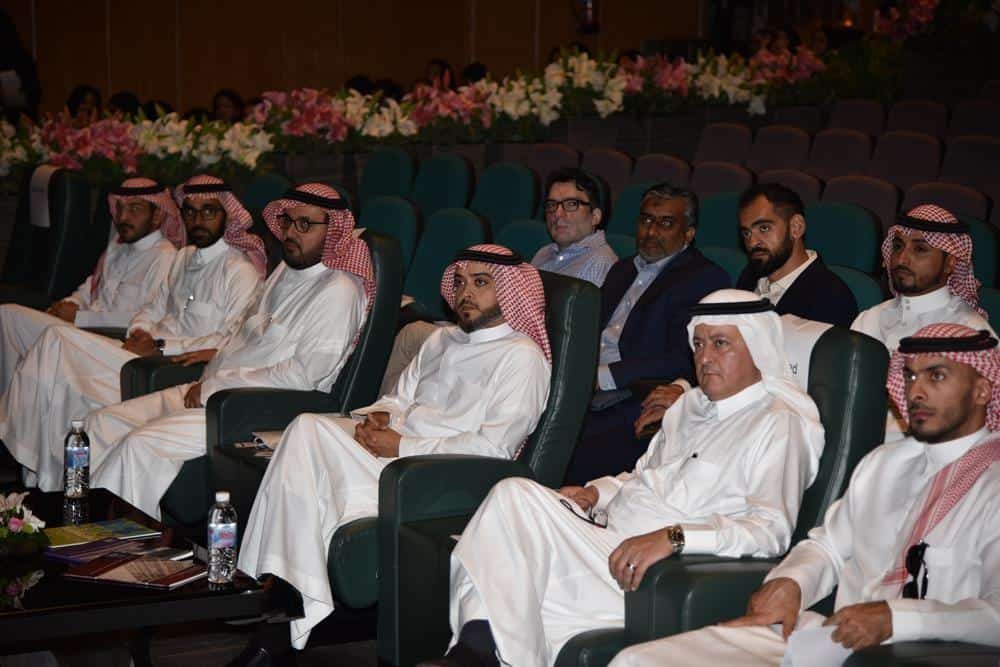Award Ceremony, Riyadh, Kingdom of Saudi Arabia, May 3rd, 2017 Introduction With the support of the Siemens integrity initiative, the Pearl Initiative regularly holds Case Study Competitions for business and law students from the leading universities in the Gulf Region to research, write and submit Case Studies on corporate good practices. This programme has reached approximately 1000 students from over 30 universities across the GCC. This programme is in line with the Pearl Initiative’s mission to grow a knowledge base on regional responsible business practices and to enhance the capabilities of future business leaders. In Fall 2017 the first round of the GCC Wide Student Case Study Competition on Corporate Integrity Good Practices was held across the GCC. The competitions aim to increase knowledge on corporate accountability, engage and inspire students to understand real-life applications of ethical business. In addition, they better equip graduating students to enter the private sector by highlighting key issues in governance, risk management, and compliance. Judging of Case Studies Submissions were assessed by a Judging Panel to determine the top 3 entries. The Judging Panel members: • Patrick Chalhoub, CEO, Chalhoub Group, United Arab Emirates • Dr. Abdulrahman Jawahery, President, Gulf Petrochemical Industries Co. (GPIC), Bahrain • Hamid Sultan Al-Busaidi, Executive Director Oman Centre for Governance and Sustainability (OCGS), Oman Award Ceremony The Award Ceremony was held at Prince Sultan University, Riyadh, Saudi Arabia on 03 May 2017. The Ceremony was attended by over 200 students and faculty members from universities across the GCC and over 15 executives from renowned organizations across the GCC. The event commenced with an opening remark from Dr. Rafed Al-Zawawi, Chair, Aviation and Management Department, Prince Sultan University. The keynote speech was given by Shadi Al Daoud, General Counsel, Head of Legal and Compliance at Siemens in Saudi Arabia who said: “The Siemens Integrity Initiative backs projects that encourage clean business and healthy competition, helping build the right environment for sustainable economic growth. With the Pearl Initiative, we look forward to yet another successful year where students learn about best practices in the private sector. In the future, we hope they will take these examples and apply them in their professional lives, bringing a positive impact on the business environment in their country.” Dr. Rimah Al-Yahya, the Vice-Rector, Prince Sultan University said: “At Prince Sultan University, we are dedicated to teaching our business students how to innovate and build resilient organizations in an evolving and digitizing economy. Corporate governance, integrity and accountability are some of the tools with which we can bring about the desired change not only to workplace culture but its essence.” She also added: “Most of all, I would like to thank all the students who participated so enthusiastically. The issue is not just winning and losing. It is by the sole fact that you participated shows what great corporate citizens of the world you are” The first prize was awarded to a student team from Prince Sultan University: • Wed Hadhrawi • Leah Villahermosa • Waad Alakeel Their case study on Ethical Labor Practices at Arab National Investment Company, supervised by Dr. Alawiya Alwy. The second prize was also awarded to a student team from Prince Sultan University: • AlAnoud Al-Eisa • Dima Shibat Al-Hamd • Sarah Al-Shuwayrikh For their case study on avoiding conflict of interest and anti-money laundering compliance used by Banque Saudi Fransi, supervised by Dr. Alawiya Alwy. The third prize was awarded to a student from Ahlia University: • Salek Muyeen Akbar For this case study on the anti-money laundering measures implemented by Bahrain Financing The company, supervised by Dr. Gagan Kukreja. Future Plans After having successfully held Case Study Competitions in Saudi Arabia, the UAE, Bahrain and most recently across the GCC, the Pearl Initiative is proud to be rolling out the second round of the GCC Wide Student Case Study Competition in Fall 2017. More information about the case study competition The overall aims of the Pearl Initiative Case Study competition are to • Contribute to documenting and increasing knowledge on corporate accountability and transparency • Engage and inspire business students in understanding real-life application of integrity, ethics, responsibility, governance, transparency, and accountability within a business context • Improve the links between business students and companies • Reward student capability and performance • Recognise companies with accountable and transparent business practices The Competition Undergraduate and graduate business and law students enrolled at accredited universities across the GCC, in teams of up to 3 students, were eligible to enter the competition. Competition entries had to be in the form of a written Case Study (target 1,500 words) in English or Arabic. The Case Studies had to describe an example of a fully implemented good practice within a company on one of the following integrity-related policies: • Anti-corruption policies • Third party due diligence • Ethical labor practices • Anti-money laundering The Case Study could be on any corporate organization based in the GCC, including state-owned entities, listed companies, private companies, family businesses, and small and medium-sized enterprises. Student teams had to collect information for the Case Study through secondary research of data in the public domain. They also had to contact and interview the relevant responsible executives at the company profiled.

